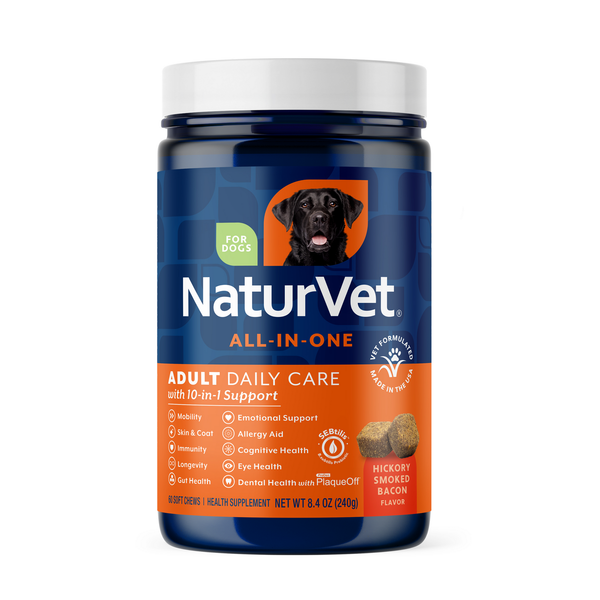Summer Snacking: 20 Foods to Keep Off Your Dog's Plate
As dedicated pet parents, we all want the best for our furry family members. That's why today, we're shining a spotlight on an essential summer safety topic: 20 foods that can be harmful to dogs.
The arrival of summer means more outdoor barbecues, picnics, and sweet treats. But remember, not all human foods are a picnic for our pets. To help you ensure a safe and enjoyable summer for your four-legged friend, we've compiled a list of 20 foods to keep off your dog's summer menu. So, let's dive in and make this a summer of fun, not tummy troubles, for our beloved pets!
20 Foods Harmful to Dogs:
1. Chocolate

A favorite indulgence for many of us, chocolate is unfortunately a hazard for our canine friends. It contains theobromine, a substance that can lead to health issues in dogs. So, it's important to keep those chocolate treats out of reach to ensure your pup stays safe and healthy.
2. Grapes and Raisins

Surprisingly, these small fruits can pose a big problem for our canine companions. Both fresh grapes and their dried counterparts, raisins, can have harmful effects on a dog's kidneys. So, it's best to keep these fruits out of paw's reach to ensure your pet's well-being.
3. Onions and Garlic

While they may add flavor to our dishes, onions and garlic are not suitable for spicing up your dog's meal. These ingredients can interfere with their red blood cells, leading to weakness, digestive upset, and an increased heart rate. Remember, it’s always best to consult with your vet before introducing new foods or seasonings to your pet’s diet.
4. Xylitol

Beware of this sweet imposter! Xylitol, a sugar substitute often found in gums, candies, and baked goods, can be harmful to dogs. This deceptive ingredient can cause a dangerous drop in your dog's blood sugar, leading to digestive issues, loss of coordination, and in severe cases, liver failure. It's crucial to keep products containing xylitol out of your pet's reach.
5. Xylitol (again, for emphasis!)

This crafty sweetener has more hiding spots than you might think! Beyond sweets and treats, xylitol can also be found in certain brands of peanut butter. If your go-to method of treating or medicating your pup involves a spoonful of peanut butter, always check the label first. Opt for xylitol-free versions to keep your dog safe and sound.
6. Other Artificial Sweeteners

Saccharin… aspartame… sucralose… these sugar imposters may sound like a sweet party, but they're no treat for our furry friends. These sneaky substitutes can wreak havoc on their delicate systems. So, keep a close eye on nutrition labels this summer.
7. Alcohol

It might seem obvious, but it's worth mentioning that alcohol is a definite no-no for dogs. Even small amounts can lead to serious health issues, including difficulty breathing, abnormal blood acidity, and even death. So, while you're enjoying your summer cocktails, make sure they're well out of your pet's reach.
Related Reading - Dogs, Cats, and Fireworks: How to Prepare
8. Avocado

While avocados are a healthy snack for humans, they're not so great for our four-legged friends. This creamy fruit contains a substance called persin, which can cause vomiting and diarrhea in dogs. So, it's best to keep the guacamole and avocado toast to yourself this summer.
9. Coffee and Caffeine

Rise and shine, but keep that coffee cup away from your canine companion! Coffee and other caffeine-containing products can cause a range of health issues in dogs, from restlessness and rapid breathing to muscle tremors and even seizures. So, let's keep our morning brew to ourselves and stick to brisk morning walks as a pet-safe pick-me-up instead.
10. Macadamia Nuts

Don't go nuts for macadamias around your furry friend! Consumption of these nuts can lead to a variety of symptoms in dogs, including weakness, tremors, vomiting, increased body temperature, and lack of coordination. So, let's keep our nutty snacks safely tucked away from our curious canines.
11. Baking Soda & Powder

Ingredients like baking soda and baking powder, which bring the magic to our cakes and cookies, can spell trouble for your canine companion. When ingested in large amounts, these seemingly harmless powders can disrupt the delicate pH balance in a dog's system, causing digestive issues and even potentially life-threatening conditions such as metabolic alkalosis.
12. Corn on the Cob

While many veggies can enhance our dog’s diets, corn on the cobs don’t digest in their stomachs. Your pup might see a fallen cob as a fun bone or toy, but make sure to keep them out of reach. They can cause a digestive blockage and even a perforation.
13. Persimmons

While these fruits might be a treat for us, they're not suitable for our pets. Persimmons can cause digestive upset and even lead to intestinal blockages in dogs. So, while we enjoy these juicy fruits, let's ensure they stay out of paw's reach to keep our pets safe and their playtime worry-free.
14. Rhubarb

Rhubarb, with its vibrant hue, is a star ingredient in many of our favorite desserts. However, for our canine companions, it's a different story. The stalks contain a toxin that can upset their stomachs. To keep our pets safe, it's best to reserve the rhubarb treats for ourselves and provide them with their own dog-friendly delights.
15. Salt

While a dash of salt can enhance our meals, it's not a flavor enhancer for our pets. Excessive sodium can disrupt their electrolyte balance, leading to symptoms like excessive thirst, upset stomach, and even tremors. Therefore, it's important to keep the salt shaker out of paw's reach.
16. Tomato Leaves and Stems

Tomatoes are a summer staple, but their leaves and stems should never make it into your dog's bowl. They contain a toxin called solanine, which can cause gastrointestinal upset and discomfort in dogs. So, when it comes to tomatoes, let's stick to the ripe, juicy fruit and keep the rest away from our pets.
Related Reading - From Fido to Ficus: A List of Pet-Friendly Plants for Your Garden
17. Fat Trimmings and Bones

It might seem like a treat, but fatty cuts of meat and bones can pose serious risks to dogs. Fat trimmings can lead to pancreatitis, and bones can splinter, causing choking hazards or internal injuries. For the safety of our pets, it's best to avoid these entirely.
18. Cinnamon

Spice up your life, but not your pet's bowl! Cinnamon adds a cozy touch to our treats, but for our furry friends, it's a no-go. Large amounts of this aromatic spice can lead to a not-so-sweet experience, causing mouth and tummy irritation.
19. Raw Potatoes

With your vet’s go-ahead, cooked potatoes can be a tasty treat for dogs, but raw ones are a no-go. They contain a toxin called solanine, which can upset their stomachs. Always ensure all potatoes served to our pets are well-cooked and free from green spots.
20. Dairy Products

We might enjoy an ice cold glass of milk, or better yet, a scoop of vanilla ice cream, but our pets tell a different story. Dairy products can cause digestive upset in dogs, leaving them feeling gassy and uncomfortable. It's best to keep the dairy products for ourselves and provide our pets with their own dog-friendly snacks and refreshments.
Related Reading - Can Cats Drink Milk?
What to Do if Your Dog Ingests Something Harmful
If your dog manages to sneak a bite of something potentially harmful, it's crucial to act quickly. First and foremost, remain calm and evaluate the situation. If the item ingested is a known toxic food for dogs, reach out to your veterinarian without delay.
Your vet can provide tailored advice based on your dog's specific circumstances. They are also equipped to guide you through recognizing the signs of dog poisoning, and can help determine the severity of the situation.
Is Inducing Vomiting in My Dog Necessary?

In certain situations, it may be necessary to induce vomiting to expel the harmful substance from your dog's system. However, this should never be attempted without professional guidance. Always consult with a veterinarian before taking this step. They can provide the necessary advice on whether this is the right course of action for your pet.
Remember, the best treatment is always prevention. By being vigilant and keeping hazardous foods and substances out of your dog's reach, you can prevent these distressing situations from occurring in the first place.
JOIN OUR PACK
Follow us @NaturVet on social media to fill us in on any information we might have missed, and explore all of NaturVet.com for the latest in pet wellness. We’ll fill you in on our favorite resources, supplements, tips and tricks, and more – everything you need to be the best pet parent possible.























